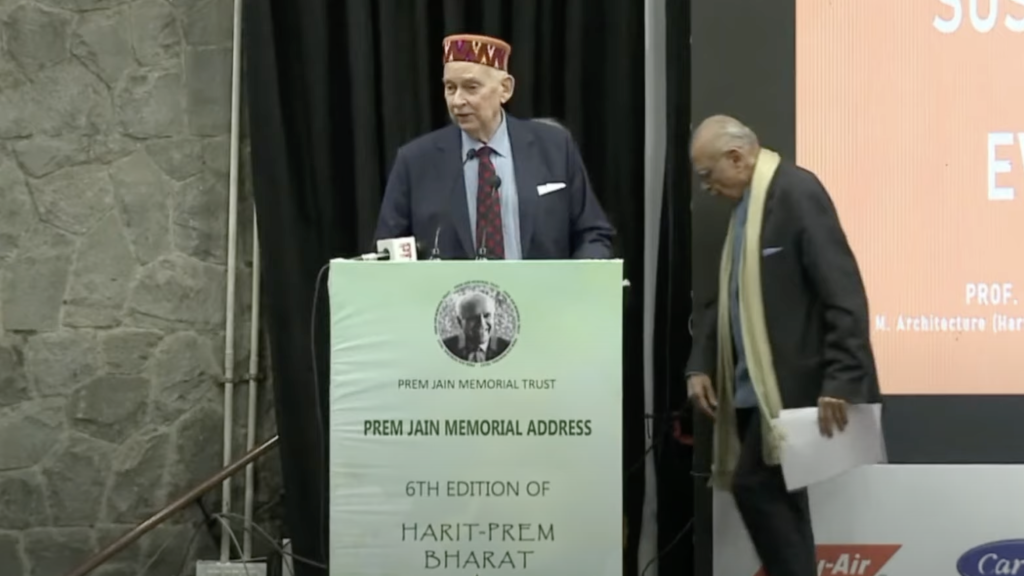In a recent event commemorating the legacy of the late Dr. Prem Jain, a visionary in the field of sustainable development in India, Prof. Christopher Benninger delivered an insightful talk on the urgent need for rethinking city designs to ensure sustainability for everyone. Prof. Benninger expressed gratitude to the organisers and emphasised the influence of Dr. Jain as a guiding force in his own journey.
The crux of Prof. Benninger’s presentation was the critical examination of existing city designs, which, in his opinion, have veered off course by drawing heavily from classical European and American suburban models. He shed light on the exclusionary nature of current city planning, where a substantial percentage, approximately 60-70% of India’s urban population, finds themselves unable to afford housing schemes in major cities.
The core issue, as highlighted by Prof. Benninger, lies in the fact that a mere 36% of the metropolitan population can afford the housing schemes proposed by developers. This exclusion not only leads to unsustainable sprawl but also results in living conditions marked by economic disparities, congestion, pollution, and a lack of access to basic amenities for a significant majority.
The talk further delved into the origins of city designs, showcasing historical influences from European royal designs to American suburban layouts. Prof. Benninger stressed the need to break away from outdated models and encouraged the audience, primarily students, to consider alternative, inclusive approaches in designing future cities.
To address this pressing challenge, Prof. Benninger proposed a set of “Principles of Intelligent Urbanism,” which, he suggested, could be interchangeably termed as “Sustainable Urbanism.” These principles, outlined in his talk, spanned ten key areas, ranging from a balance with nature and tradition to the promotion of appropriate technology, conviviality, and institutional integrity.
A call to action resonated throughout the presentation, urging young students to take on the mantle of reimagining cities and developing concepts that incorporate the 60% of the population currently excluded from mainstream urban development projects. Prof. Benninger’s vision included the creation of self-help cities, where individuals could actively participate in building their homes on affordable plots, fostering a sense of ownership and community.
In essence, the talk by Prof. Christopher Benninger echoed Dr. Prem Jain’s commitment to sustainable development and challenged the status quo, urging a paradigm shift in urban planning towards inclusivity, balance, and the well-being of all citizens. The principles laid out serve as a beacon for future architects, urban planners, and policymakers to forge a path towards intelligent and sustainable urbanism in India and beyond.
Feature Image courtesy: CCBA Designs via Youtube





